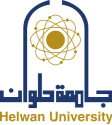Architecture by Digital technology Program
Program Definition :
The Digital Architecture Program is an advanced specialization in the field of architectural engineering that combines artistic creativity with modern design and construction technologies. This program stands out due to its unique blend of traditional engineering concepts and advanced technologies such as virtual reality, artificial intelligence, data analysis, and generative design. The program aims to train students to use modern technological tools to achieve innovative, environmentally, and economically sustainable architectural designs.

Name: Prof. Dr. Inas Abdul Sabbour Ahmed
Degree : Prof. Dr., Department of Architecture
Email : inas.abdelsabour@m-eng.helwan.edu.eg


Program Mission:
The mission of the Digital Architecture Program revolves around preparing architects who possess the knowledge and technical skills necessary to develop and design buildings and architectural projects that keep pace with the latest global trends in digital technologies. The focus is on sustainability, creativity, and integrating modern digital technologies into all stages of architectural work.
Program Objectives:
- Enhancement of architectural education standards by integrating digital technology into design and construction methodologies.
- Training students to use advanced software and tools for analyzing architectural models and making optimal decisions.
- Promoting creativity and innovation in responding to community needs and providing advanced design solutions.
- Developing sustainable and efficient architectural projects in terms of cost, time, and effort.
- Empowering students to work within multidisciplinary teams using advanced digital communication technologies.
- Enabling students to apply principles of sustainability and green design by utilizing digital technologies


- Application of Artificial Intelligence and Machine Learning: Applies AI techniques to improve design processes and produce more efficient projects.
- Knowledge of Advanced Materials and Techniques: Well-versed in utilizing modern building materials and techniques in an economical and effective manner.
- Leadership and Professional Responsibility: Qualified to assume leadership roles and make responsible decisions in a modern architectural work environment.
- Self-Learning and Continuous Development: Accustomed to continual learning and skills development to keep up with fast-paced technological advances.
- Competitiveness in the Job Market: Possesses skills that enable competition locally, regionally, and internationally.
- Theoretical and Practical Knowledge: Combines a robust foundation in theoretical knowledge with practical application in design and implementation.
- Commitment to Professional Ethics: Maintains work ethics and a sense of responsibility towards the profession, society, and the environment.
- Presentation and Technical Writing Skills: Capable of clearly presenting ideas through presentations, reports, and technical drawings.
Graduate's specifications:
Graduate Attributes (The Qualities Targeted in Program Graduates)
The program aims to graduate architects who possess the following qualities and abilities:
- Mastery of Digital Technologies: Proficient in using advanced digital software and technologies in design and engineering analysis.
- Interaction with Virtual and Augmented Reality: Capable of utilizing virtual and augmented reality in the development of architectural designs and projects.
- Architectural Data Analysis: Able to analyze and process data to support optimal engineering decision-making.
- Creativity and Innovation: Creates innovative architectural designs that meet community needs and ensure modern, sustainable environments.
- Effective Communication and Collaboration: Possesses strong communication skills, allowing work within multidisciplinary teams using advanced digital tools.
- Application of Sustainability and Green Building Principles: Implements sustainable design strategies and technologies to produce environmentally friendly buildings.
- Performance and Design Analysis: Skilled in using virtual modeling and analysis techniques to ensure the efficiency and safety of designs.







